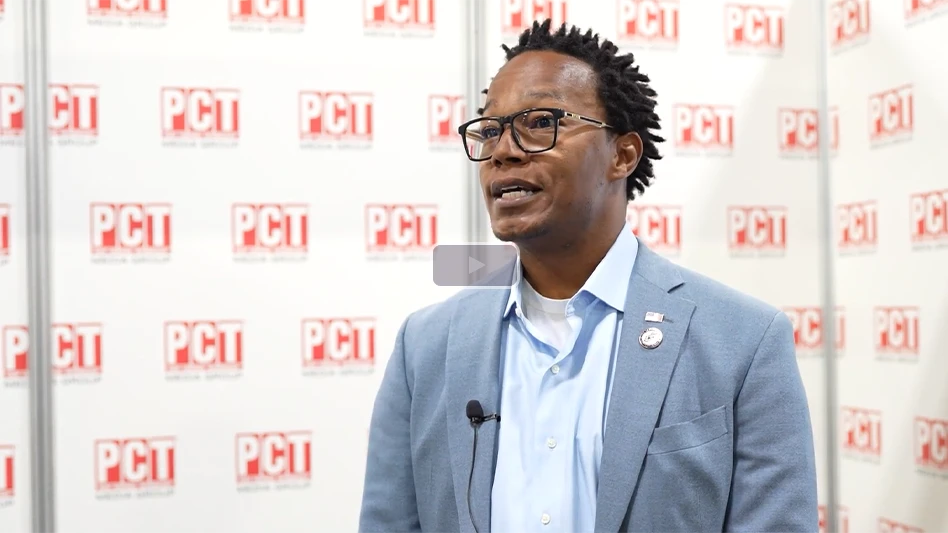Last month, PCT described how one successful PMP, Russ Jundt of Mosquito Squad of Minnesota, used "grass-roots" marketing to grow his business at a time when many companies have been struggling to make ends meet in the wake of the Great Recession. In part two of our coverage of this annual conference, sponsored by MGK, we highlight other educational sessions featured at the two-day seminars, which were held in Houston and Atlanta this year.
SOCIAL MEDIA BOOT CAMP. MGK’s Social Media Mini Boot Camp was headlined by Paul Slack, who is co-owner of SplashMedia, a company specializing in digital marketing strategies for small businesses.
Describing social media as "word-of-mouth advertising on steroids," Slack said it’s a phenomenon PMPs need to pay attention to. "Social media marketing is happening to your company whether you’re in the game or not," he said, with customers talking about your firm on Facebook, Craig’s List and other social network sites. Although it’s a diverse landscape, Slack said social media — more than anything else — is a way of leveraging technology to expand your universe of friends.
But, he cautioned, "you really need to develop a strategy" before getting started. His three-legged stool for developing a successful strategy includes documenting how digital media will grow the business, measuring for performance and costs, and then refining objectives where needed.
Furthermore Slack said business owners must become "creators" and "critics" in their social media efforts, being prepared to start conversations, write blogs, send tweets, post television-quality videos and provide content for prospective customers. "You need to know your business," he said. "That’s your social media currency."
In closing his presentation, Slack had one more piece of advice. "Don’t wait to get involved," he said. "The train is leaving the station."
DISEASE, LIABILITY & CONTROL. Keynote speaker Dr. Jerome Goddard, an associate extension professor of medical and veterinary entomology at Mississippi State University, discussed the health implications of mosquitoes, including their role in vector-borne diseases.
"Mosquitoes are the big bad boys of all time in terms of transmitting disease," Goddard said. He explained that historic vector-borne diseases are still around, and continue to spread in tropical areas. Malaria remains the world’s number one infectious disease, while dengue fever, transmitted by a number of common mosquito species, has been increasing dramatically in recent years.
However, Goddard noted, the annoyance aspects of mosquitoes remain the most relevant for most U.S. consumers seeking control services. He urged PMPs to focus, not on the disease aspects, but instead on the nuisance factor when selling mosquito control services.
"You really need to separate nuisance mosquitoes from disease transmission mosquitoes," he said. Some of the most common health effects, he added, include hypersensitivity to bites, secondary infection, or annoyance from the bites themselves.
Attendees also learned about the potential liabilities arising from mosquito control work in a presentation by Andy McGinty, executive vice president of LIPCA Insurance. Fortunately for PMPs, McGinty said, the mosquito misting business has turned out to be largely low risk from a claims perspective. Overall, liabilities and claims can generally be avoided with the right contract and documentation, McGinty explained. "We are probably one of the largest insurers of mosquito misters, and since 2003, we’ve had one claim," he said. "This is probably one of the best books of business we’ve ever had."
Still, McGinty noted quality contracts are imperative. Besides being written in simple language, contracts should contain warnings and exclusions, and should stipulate binding arbitration. Furthermore, McGinty said having written documentation of any service agreement is the most effective form of communication and key to a good defense.
"If you’re going to offer something, put it in black and white," McGinty said. "If it’s not in black and white, it will be used against you." McGinty also said most pest control lawsuits can be "totally prevented if you have the right contracts and documentation."
In an equipment engineering session delivered by Jim Jackson, president of Mist-Away Systems, attendees learned how the company engineers, assembles and sells its misting equipment. MistAway has sold some 15,000 units since 2005, with the units delivering small amounts of active ingredient in highly diluted form over a broad area (i.e., backyard).
"To get the best results, we need to spread the solution over as large an area as possible," he said. "A mist of smaller droplets has much more surface area than the same flow of a mist comprised of larger droplets." What’s more he added, "If you’re not putting out a blanket that’s the right size, it’s just not going to work," which is why equipment maintenance and the proper misting configuration are so important.
To learn more about MGK and its mosquito control product offerings, visit www.mgkpro.com.
The author is a frequent contributor to PCT and can be reached at lmckenna@giemedia.com.

Explore the May 2011 Issue
Check out more from this issue and find your next story to read.
Latest from Pest Control Technology
- MGK Announces EPA Registration of Botanical Active Ingredient Veratrine
- Termite Control Sales Strategies
- NPMA Announces ELP Class of 2025
- Termite Control Tools and Equipment for PMPs
- Choe Reviews Drywood Termite Geographical Hotspots, Latest Research Findings
- Mosquito Squad Announces Rebranding to Mosquito Squad Plus
- Pest Control Equipment: If it’s Critical, Back it Up!
- In Memoriam: Marybeth Wonson





